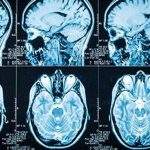
Preliminary data from the largest survey examining the quality of life for transgender and nonbinary Americans show they suffer high levels of unemployment and harassment. In the early findings, released Wednesday, the National Center for Transgender Equality gathered responses on 600 questions from more than 92,000 transgender and nonbinary Americans, age 16 and up, from every state in the country. This latest survey, conducted in late 2022, drew more than three times as many respondents as there were in 2015, the last time the survey was conducted. “You don’t see data sets like this,” survey leader Sandy James said during a media briefing, the New York Times reported. “Tens of thousands of trans people knew that it was imperative that they make their voices heard.” What did they want Americans to hear? Many respondents reported daunting financial challenges. Eighteen percent said they were unemployed, much higher than the national rate, and one-third said they had experienced homelessness at some point in their lives. More than one-quarter reported not seeing a doctor when they needed to in the previous year because of cost. But financial problems were not their only burden to bear: Nearly a third said they had been verbally harassed in the previous year, while 3% said they were physically attacked in the last year because of their gender identity. Still, they also shared positive… read on > read on >


















